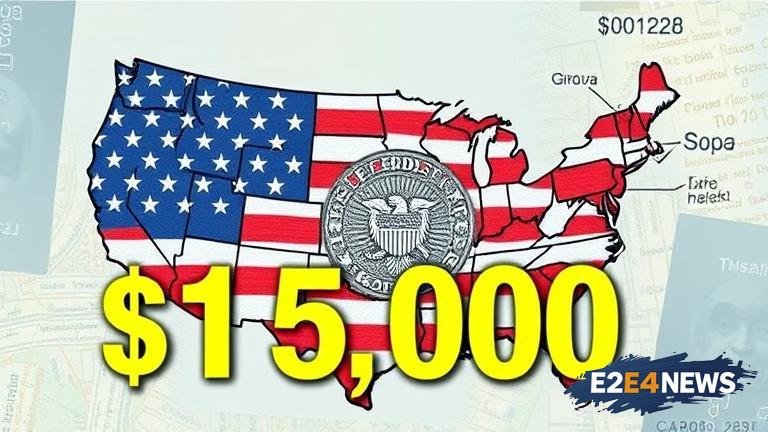The United States government is proposing a new policy that would require individuals applying for a tourist visa to pay a $15,000 bond. This move is aimed at reducing the number of visa overstays, where individuals remain in the country beyond their authorized stay. The bond would be refundable if the individual leaves the country within the specified timeframe. However, if they overstay, the bond would be forfeited. The proposal has sparked concerns among travelers, tour operators, and the tourism industry, who fear that it would deter visitors from coming to the US. The policy is still in the proposal stage and has not been finalized. The US government has been exploring ways to reduce visa overstays, which have been a persistent issue. According to official data, in 2020, over 670,000 individuals overstayed their visas. The proposed bond is seen as a measure to encourage individuals to comply with the terms of their visa. However, critics argue that the bond is too high and would disproportionately affect low-income individuals and families. The policy has also raised concerns among diplomats and foreign governments, who fear that it would damage relations with the US. The US tourism industry is also likely to be impacted, as the bond would add an extra layer of cost and complexity for visitors. The proposal has been met with opposition from various stakeholders, including the US Travel Association, which has argued that the bond would be a deterrent to legitimate travelers. The association has suggested alternative measures, such as improving the visa application process and increasing awareness about the terms of the visa. The US government has said that the proposal is still under review and that no final decision has been made. The policy has sparked a debate about the balance between national security and the need to facilitate legitimate travel. While the US government has a responsibility to enforce its immigration laws, it also needs to ensure that its policies do not harm the economy or damage relations with other countries. The proposed bond has also raised questions about the effectiveness of such a measure in reducing visa overstays. Some experts have argued that the bond would not be an effective deterrent, as individuals who are determined to overstay their visa would still find ways to do so. Others have suggested that the bond would be a regressive measure that would disproportionately affect certain groups of people. The US government needs to carefully consider the potential impact of the proposed policy and explore alternative measures that would achieve its goals without harming the tourism industry or damaging relations with other countries. The proposal has highlighted the need for a more nuanced approach to immigration policy, one that balances the need for national security with the need to facilitate legitimate travel and commerce. As the US government continues to review the proposal, it is likely that there will be further debate and discussion about the merits of the policy. The outcome of this debate will have significant implications for the US tourism industry, as well as for individuals and families who wish to visit the US. The proposed bond has also raised questions about the role of technology in facilitating immigration enforcement. Some experts have suggested that the use of advanced technologies, such as biometrics and data analytics, could provide a more effective and efficient way to track visa overstays and enforce immigration laws. The US government has already begun to explore the use of such technologies, and it is likely that they will play an increasingly important role in immigration enforcement in the future. As the debate over the proposed bond continues, it is clear that the US government faces a complex challenge in balancing its immigration policies with the need to facilitate legitimate travel and commerce. The outcome of this debate will have significant implications for the US tourism industry, as well as for individuals and families who wish to visit the US.





